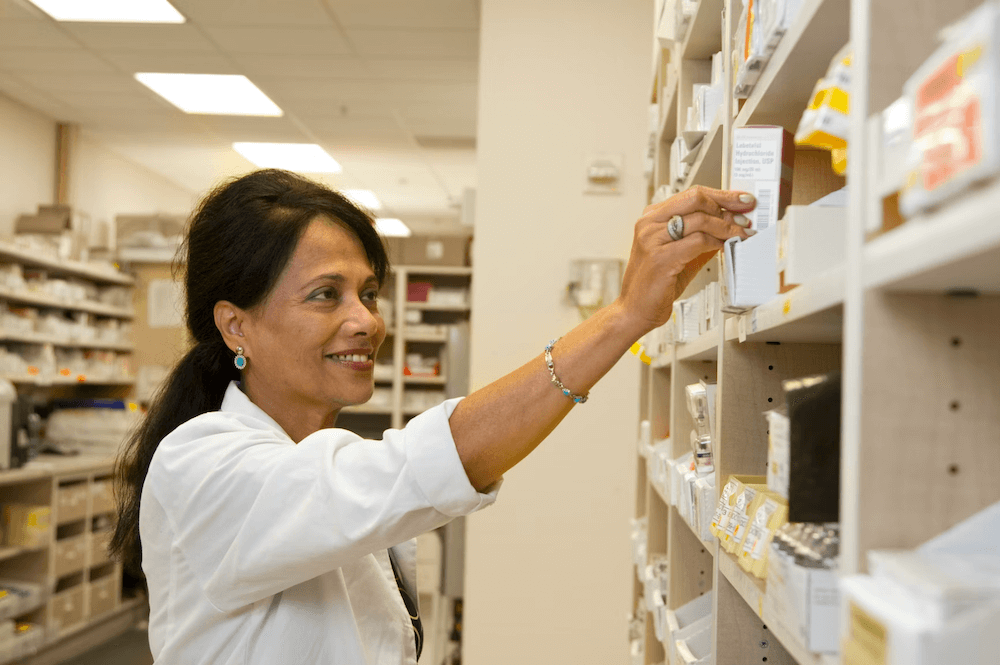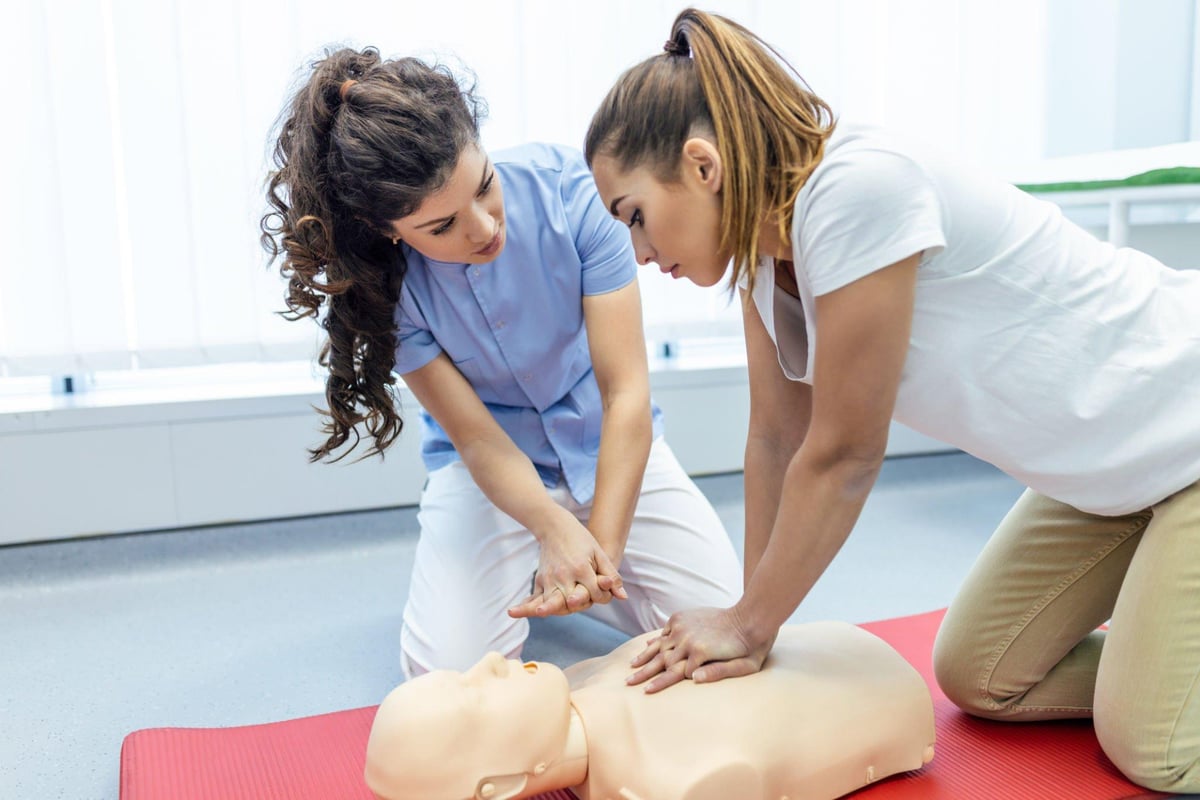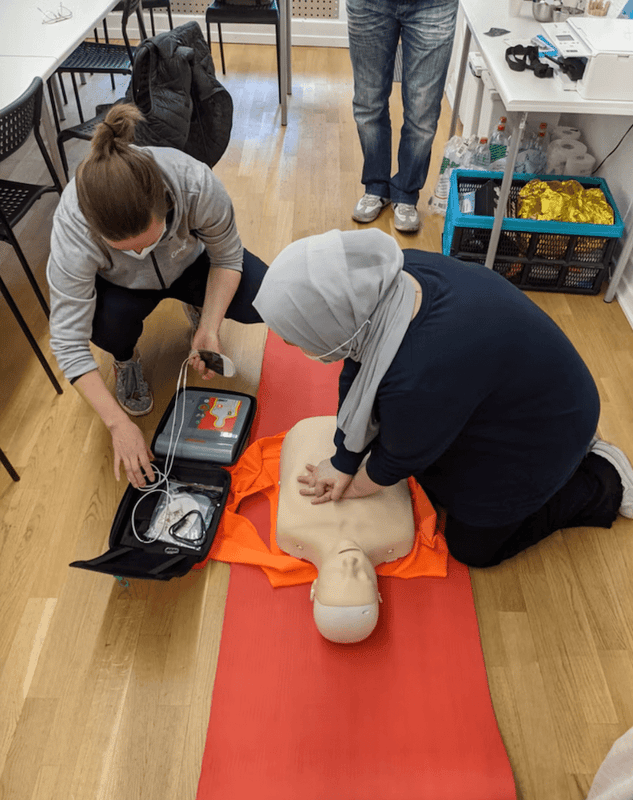Central Carolina Technical College

Classes from CCTC
In person Phlebotomy Classes

Phlebotomy Technician Program
Unlock a vital role in healthcare with Central Carolina Technical College's hybrid Phlebotomy Technician program. This program is designed to transform aspiring healthcare professionals into National Healthcare Association (NHA) Certified Phlebotomy Technicians, equipping them with essential skills in venipuncture and specimen collection. Benefit from a unique blend of online coursework covering industry fundamentals, ethics, and compliance, complemented by hands-on practical training in authentic hospital and clinical environments. With no training fees and a supportive learning environment, this program offers an accessible pathway to a rewarding career, ensuring graduates are workforce-ready and prepared for certification.
Program Details:
- Cost: No fee associated with the training program. Scholarships are available for eligible students.
- Duration: 112 hours, including classroom instruction and 40 hours of off-site clinical training.
- Schedule: Hybrid modality, with the majority of the program conducted in-person and via Zoom, requiring a computer or laptop with reliable internet.
- Prerequisites: At least 18 years old, high school diploma or GED, and completion of prerequisite courses with a grade of 'C' or higher (e.g., AHS 105, AHS 131, AHS 170, NUR 102, depending on the specific phlebotomy course).
- Accreditations: Prepares students to sit for the National Healthcare Association (NHA) Certified Phlebotomy Technician (CPT) exam. Central Carolina Technical College is institutionally accredited by the Southern Association of Colleges and Schools Commission on Colleges (SACSCOC) to award associate degrees.
- Career Outcomes: Prepares students for NHA Certified Phlebotomy Technician roles.
In person Pharmacy Technician Classes

The Pharmacy Technician Certificate Curriculum is a formal academic training program that prepares individuals to become pharmacy technicians. These allied health professionals assist and support licensed pharmacists in preparing and dispensing medications and other health care products to patients. Under the direction of a pharmacist, the pharmacy technician performs pharmacy-related functions, in compliance with specific policies and procedures that provide optimal pharmaceutical care for their patients.
Pharmacy technicians are in high demand in health care and in the pharmaceutical industry. Job opportunities for pharmacy technicians are good, especially for those with previous experience, formal training, or certification, according to the U.S. Department of Labor. Possible career opportunities for pharmacy technicians include a variety of practice environments including hospital, infusion, and long term care, and mail-order, chain and community pharmacy services. Pharmacy technicians work in computerized, clean, organized, well-lighted, and well-ventilated areas. Most of their workday is spent on their feet. They may be required to lift heavy boxes or to use stepladders to retrieve supplies from high shelves.
Pharmacy technicians often have varying work schedules that include nights, weekends, and holidays. In facilities that are open twenty-four hours a day, such as hospital and mail order pharmacies, technicians may be required to work nights. Many technicians work part time.
The South Carolina Pharmacy Practice Act (administered by the S.C. Board of Pharmacy) requires all pharmacy technicians desiring state certification to (1) pass the Pharmacy Technician Certification Exam (PTCE)- a national exam, (2) complete 1000 hours of practice (up to 400 clinical training hours in an educational program are recognized) under the supervision of a licensed pharmacist, and (3) provide proof of completion of a formal academic pharmacy technician training program that is nationally accredited.
The Pharmacy Technician Certificate program is accredited by the American Society of Health System Pharmacists (ASHP), 500 East-West Highway, Suite 900 Bethesda, MD 20814, Phone (866) 279-0681, www.ashp.org and the Accreditation Council for Pharmacy Education (ACPE), 190 S. LaSalle Street, Suite 2850 Chicago, IL 60603-3499, Phone (312) 664-3574, Fax (866) 228-2631, www.acpe-accredit.org.
In person Massage Therapist Classes

The Massage Therapy Program is an entry-level training program for students interested in becoming a massage therapist or for health care providers wishing to expand their range of clinical skills and knowledge. The Massage Therapy program prepares graduates to work in direct client care settings to provide manipulation (massage) of the soft tissue structures of the body to prevent and alleviate pain, discomfort, muscle spasm, and stress, and to promote health and wellness.
Employment opportunities may be found in health care facilities, rehabilitation centers, medical offices, nursing homes, spas, health and sports clubs, hotels/resorts, cruise ships, and private practice.
Upon successful completion of the Massage Therapy Certificate, students are eligible to apply to take the Federation of States Examination (MBLEx) before applying for a South Carolina license. Note: South Carolina licensure eligibility may be denied to applicants with criminal convictions. Graduates are eligible to apply to take the NCBTMB Specialty Certificate for Integrative Healthcare.
LPN-ADN

The LPN to ADN Option provides qualified licensed practical nurses (LPN) the opportunity for advanced placement into the Associate Degree Nursing (ADN) program. The ADN program prepares graduates to function as competent nurses who are caring and sensitive to diversity, use critical thinking and technology to provide care in structured settings for patients and their families/significant others. Throughout the program, the student has planned clinical experiences to complement classroom learning and to enhance skills in the application of nursing principles and associated technology. The scheduling of clinical experiences varies throughout the nursing program.
The Associate Degree Nursing program at Central Carolina Technical College at the Health Sciences Center located in Sumter, South Carolina is accredited by the: Accreditation Commission for Education in NurThe Associate Degree Nursing program is accredited by the Accreditation Commission for Education in Nursing (ACEN), 3390 Peachtree Road NE, Suite 1400, Atlanta, Georgia 30326, (404)975-5000 www.acenursing.org. The most recent accreditation decision made by the ACEN Board of Commissioners for the Associate Degree Nursing program is Continuing Accreditation.
The ADN program prepares graduates to apply to take the National Council Licensing Examination for Registered Nurses (NCLEX-RN) and is approved by the South Carolina Department of Labor, Licensing, and Regulation (LLR) Board of Nursing, 110 Centerview Drive, Columbia, SC 29210, (803)896-4300, https://llr.sc.gov/nurse.
In person Emergency Medical Technician Classes

This hybrid program provides technical knowledge and training to become a Basic EMT. It prepares students to give efficient care to critically ill and injured at the scene and en route to a medical facility. The program is certified by the South Carolina Department of Health and Environmental Control. Successful completion makes students eligible to take the national certification examination. Some Saturday classes will be required. Hybrid courses have both face-to-face and online requirements to successfully complete the course. Scholarships are available to eligible participants. Click the link below to view the EMT Enrollment Guide. The Enrollment Guide will provide step-by-step instructions on how to apply for a full tuition scholarship.
In person Associate Degree in Nursing (ADN) Classes

The Associate Degree Nursing (ADN) program prepares graduates to function as competent registered nurses who are caring and sensitive to diversity and use critical thinking and technology to provide care in structured settings for patients and their families/significant others. Throughout the program, the student has planned clinical experiences to complement classroom learning and to enhance skills in the application of nursing principles and associated technology. The scheduling of clinical experiences varies throughout the nursing program.
The Associate Degree Nursing program at Central Carolina Technical College at the Health Sciences Center located in Sumter, South Carolina is accredited by the: Accreditation Commission for Education in Nursing (ACEN) 3390 Peachtree Road NE, Suite 1400 Atlanta, GA 30326, Phone (404) 975-5000, www.acenursing.org. The most recent accreditation decision made by the ACEN Board of Commissioners for the Associate Degree Nursing program is Continuing Accreditation.
The Associate Degree Nursing Program is approved by the South Carolina Labor, Licensing, and Regulation Board of nursing, 110 Centerview Drive, Columbia, SC 29210, Phone (803) 896-4300, https://llr.sc.gov/nurse/.
Requirements for the program are subject to change without notice in order to meet requirements of the South Carolina LLR Board of Nursing, the South Carolina Technical College System, and ACEN.
Medical Coding certificate

The Medical Record Coding Certificate program is designed to prepare health information professionals who focus on medical record management with an emphasis on procedural and diagnostic coding for reimbursement of professional services performed in healthcare facilities. The program includes medical terminology, human disease process, pharmacology, medical billing, procedural and diagnostic coding and medical records regulations. Upon successful completion of the Medical Record Coding Certificate program, the student may be eligible to take the certification examinations administered by the American Health Information Management Association (AHIMA) and/or the American Academy of Professional Coders (AAPC).
In person Certified Nursing Assistant Classes

This program provides students with basic training in the care and delivery of health services to geriatric and/or acutely ill patients confined in short-term facilities, long-term institutions, and home care. This program has been expanded to include ethics, home care, and more in-class and on-site clinical experience. This program will also include an introduction to the health care industry and CPR training. Click the link below to view the CNA Enrollment Guide. The Enrollment Guide will provide step-by-step instructions on how to apply for a full tuition scholarship.
In person CPR / Basic Life Support Classes

The American Heart Association course teaches the skills of CPR for victims of all ages (including ventilation with a barrier device, a bag mask device, and oxygen), use of AED, and relief of FBAO in responsive and unresponsive victims. This course is designed for health care providers who care for patients in a variety of settings, both inpatient and outpatient. The book is included with tuition.
In person Commercial Driver's License Class B (CDL-B) Classes

Class Hours: 160 hours In four to eight short weeks, students will be ready to pass the Class A Commercial Driver’s License exam and hit the road as a licensed commercial truck driver. Students will get classroom and highway instruction as they train to sign on with a trucking company or become their own boss as an owner-operator of a commercial vehicle. Graduates will be prepared to test for a Class A Commercial Driver’s License. If accepted into the program, students are required to obtain a Commercial Learner’s Permit, a 10-year driving record obtained from DMV, a DOT drug screening and a DOT physical before they can be fully registered for a class. The program has been inspected, approved and licensed by the S.C. Department of Motor Vehicles. All instructors meet the department’s standards and are certified by the DMV. Students are given the opportunity to take the CDL driving test in the same vehicle they used to complete their training. CCTC has partnered with Ancora Education to provide the CDL Training Certificate. The entire registration process can take several weeks to complete and must start at a Central Carolina Technical College campus. For more information about the CDL program registration process, please contact them at [email protected] or 803.778.6656 Classroom Hours: Approximately 40 hours. The remainder of the time will be spent on the range and in the trucks. Classes are scheduled on a regular basis in one of the following formats: Weekday: Monday – Thursday, 7 a.m. to 5:30 p.m. (four-week session) or Weekend: Saturday – Sunday, 7 a.m. to 5:30 p.m. (eight-week session)
About school
Central Carolina Technical College
Central Carolina Technical College is a public two-year higher education institution located in Sumter, SC, offering over 50 diverse programs, including associate degrees, diplomas, and certificates, with both traditional and online course options. The college supports smooth transfer pathways to four-year institutions through cooperative agreements. With a favorable 15:1 student-faculty ratio, it fosters a supportive learning environment where students save an average of $30,000 compared to other institutions. The college is committed to student success through dedicated staff and is recognized for faculty excellence, ensuring a quality and affordable education.
Highlights:
- Offers over 50 programs with cooperative agreements for smooth transfer to four-year colleges
- Fosters a positive and supportive learning environment
- Provides a unique hybrid Phlebotomy Technician program with no training fee
- Prepares students for National Healthcare Association certification
- Institutionally accredited by SACSCOC, ensuring quality education and workforce readiness
In the Sumter, SC area
506 N Guignard Dr, Sumter, SC 29150